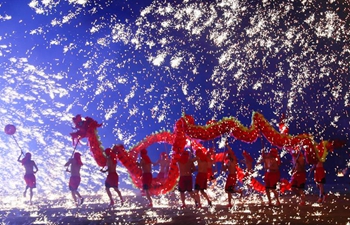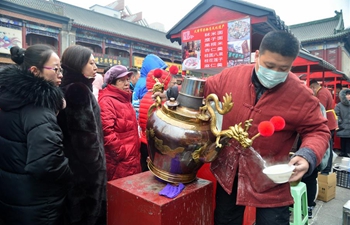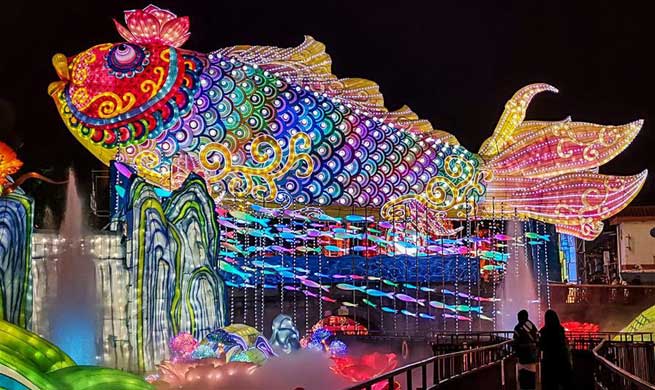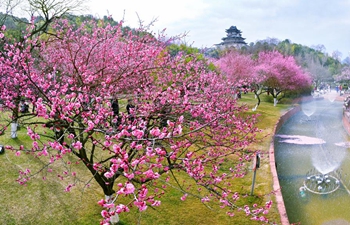TAIYUAN, Feb. 7 (Xinhua) -- Yuncheng Salt Lake, known as the "Dead Sea of China," has transformed from a salt production base to a photographers' paradise.
Zhang Genzhen's cameras capture the beauty of the salt lake in the city of Yuncheng in north China's Shanxi Province in every season.
In the biting winter, clear "flowers" shaped like coral form as mirabilite crystallizes on the lake surface. As the temperature rises, the lake looks like a giant colorful "palette" from the air.
The lake is also home to over 100 rare bird species. Even flamingos, famous for their pink feathers, were introduced in 2014 to live and breed there.
"A lot of photographers like me rush to the salt lake to take pictures of these beautiful birds," Zhang said.
Yuncheng Salt Lake, as one of three inland salt lakes with sodium sulfate in the world, covers 132 square kilometers. The amount of salt it contains is similar to the Dead Sea and allows humans to float in it.
The Chinese began making use of the lake at least 4,000 years ago.
Revenue from the salt produced by the lake accounted for about one-eighth of the country's total during the reign of Emperor Li Yu in the Tang Dynasty (618-907 A.D.), according to Li Zhulin, former curator of Hedong Salt Industry Museum in Yuncheng.
However, the salt lake lost its shine in the 1940s as people discovered and started exploiting more salt in other parts of China. The lake stopped producing edible salt in the 1980s and put more effort into manufacturing industrial salt such as mirabilite.
"Due to a blind expansion strategy, environmental concerns, unchanged product portfolio and the rise of private enterprises, the salt lake said goodbye to its temporary glory," Li said.
Entering the 21st century, the lake has been striving to transform into a tourist resort and has attracted more than 200,000 tourists each year through a series of projects such as lake floating and mineral salt therapy.
The locals preserved the ancient method of salt production, which was listed as an intangible cultural heritage by Shanxi Province in 2007.
"We can produce 200 tons of salt per year through this ancient method," said Zhang Huiping, a salt-harvester.
Besides producing salt and mirabilite, the lake is experiencing a third production revolution -- breeding brine shrimp, an important biological bait. Last year, the sales of brine shrimp reached 16.78 million yuan (around 2.5 million U.S. dollars.)
Though there are difficulties in funding the lake's tourism, Li Limin, executive director with the Yuncheng Salt Lake Tourism Company, is still hopeful about the future of the lake.
"We are able to develop the salt lake in the process of protection, making it an international health and recreation center," Li said.

















